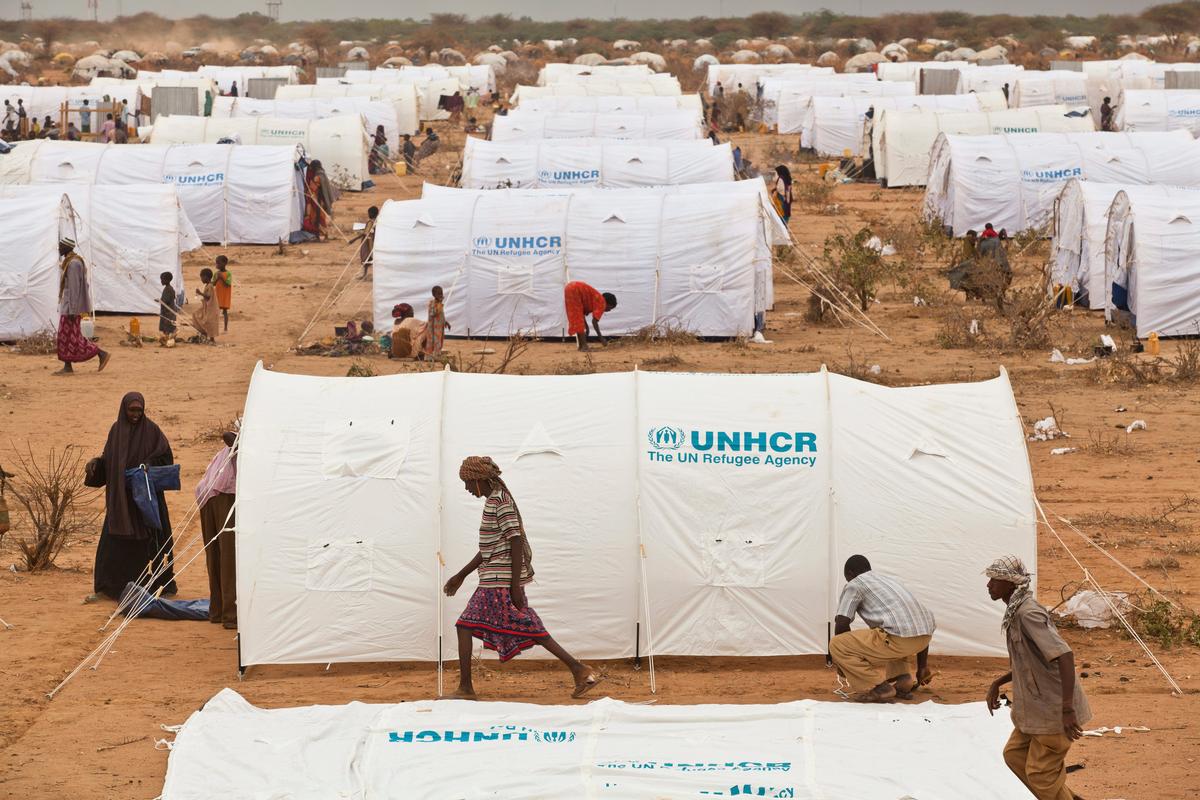

With more than 45 million displaced people across Africa, experts, organisations, and stakeholders have come together to unlock inclusive economic opportunities and strengthen social cohesion for refugees on the continent.
According to the UN Refugee Agency (UNHCR), in 2024, Kenya alone hosted 774,370 refugees and asylum-seekers. This includes 561,060 refugees and 213,310 asylum-seekers in the Dadaab and Kakuma refugee camps, as well as urban areas like Nairobi.
Nancy Aburi, Chief of Private Sector Partnerships for Africa at UNHCR, pointed out the untapped potential of displaced populations.
“Displaced communities have the skills, talent, and ambition to fuel economic growth and innovation,” she said.
In a bid to promote inclusion, investment, and innovation that can transform the lives of refugees and their host communities, experts gathered at the Africa Forum on Displacement 2025 (AFD2025) in Kakuma and Nairobi.
The forum, co-hosted by the Amahoro Coalition, Inkomoko, and UNHCR, brought together leaders from business, government, philanthropy, and refugee communities.
“Through AFD2025, we’re strengthening partnerships that invest in refugees’ potential and deliver sustainable, market-led solutions,” Aburi said.
Held under the theme “All IN,” the forum focused on bold, private sector-driven strategies to advance economic inclusion and social cohesion across Africa.
The event also featured an integrated marketplace, showcasing businesses led by both refugees and host community entrepreneurs.
“Displaced entrepreneurs already have the resilience and skill. What they need is fair access to capital and markets,” said Julienne Oyler, Co-Founder and CEO of Inkomoko.
“At AFD2025, we’re calling on the private sector to step up with meaningful investments that drive long-term impact.”
Latest data from UNHCR and the Kenyan government indicates a slight increase in the refugee and asylum-seeker population, from 770,225 in April to 774,370 in May 2024.
This growth is attributed to the resumption of registration in Dadaab and new arrivals from countries including South Sudan, Burundi, the Democratic Republic of the Congo, Somalia, and Ethiopia.
The data showed that as of May 2024, Dadaab reported 382,658 individuals, Kakuma had 288,206 individuals (212,283 in Kakuma Camp, 73,786 in Kalobeyei Settlement, 2,137 in Eldoret), while urban areas of Nairobi, Mombasa and Nakuru reported 103,506 individuals.
The AFD2025 concluded with the graduation ceremony of the Amahoro Fellowship, celebrating Africa’s first cohort of emerging leaders with lived experiences of displacement.
“AFD2025 is more than a conversation, it’s a call to action,” said Isaac Kwaku Fokuo, Curator of the Amahoro Coalition.
“It challenges all of us businesses, governments, and communities to go ‘All IN’ for displaced people, not with charity, but with opportunity.”
The Forum was held in partnership with the Mastercard Foundation and the IKEA Foundation.










